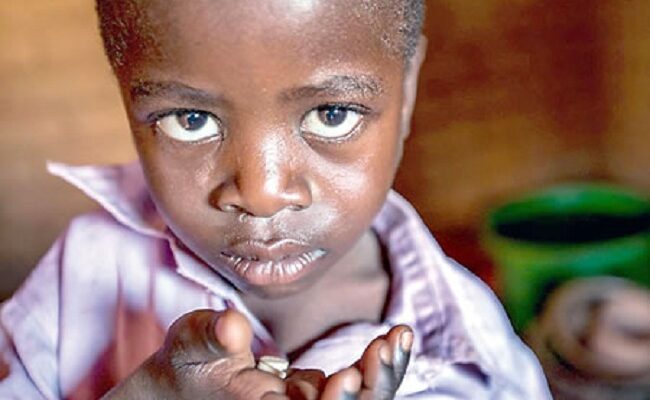By Sade Oguntola
A medical expert, Professor Grace Gbotosho says that a decline in responsiveness of children with malaria to Artemisinin-based combination therapy (ACT) in Nigeria has been noticed, and it calls for urgent attention.
Professor Gbotosho, in her inaugural lecture titled “Stalking the Stalker: Escapades in the World of Malaria” at the University of Ibadan, said the decline is more pronounced in children with malaria treated with Artemether-lumefantrine than those treated with Artesunate-amodiaquine.

Gbotosho, a professor of pharmacology and Toxicology, said the overall proportion of children with asexual malaria parasite positivity days after treatment, a marker of responsiveness of children to these antimalarial medicines, has significantly risen.
According to her, the worsening of these markers of responsiveness of children with malaria to Artemisinin-based combination therapy (ACT) is thought to be primarily due to the Artemisinin components of ACT.
While noting that the concept of antimalarial drug rotation is gaining prominence due to partial resistance to Artemisinin and lack of effective antimalarial drugs globally, she said there was a need for Nigeria to withdrawal chloroquine from clinical use to ensure that the drug regains its therapeutic efficacy in the country.

She declared:”The replacement of chloroquine with ACT across Africa in the 21st century has resulted in a regeneration of “chloroquine-sensitive parasites” after the withdrawal of chloroquine drug pressure in some other African countries, including Cameroon, Zambia, Uganda and Kenya.

“Unfortunately, parasites from Nigeria do not fall within this category. Recent studies showed a high prevalence of parasites with the chloroquine-sensitive strain of Plasmodium falciparum has not yet reemerged in Nigeria, 17 years after the malaria treatment policy was changed to ACT.
“This could be due to the persistent chloroquine pressure, which is aided by the widespread availability of chloroquine over the counter in most pharmacies across the country. As a result, the continued use of chloroquine for malaria treatment as well as the possibility of its sale over-the-counter in Nigeria must be addressed immediately.”
The don termed the female anopheles mosquito as a stalker and malaria a preventable disease that is still ravaging and causing misery in sub-Saharan Africa.
She, however, called for the establishment of an African Malaria School to develop physical infrastructure to train and retrain high quality researchers to undertake research in malaria and other infectious diseases to actualize a malaria-free world.








